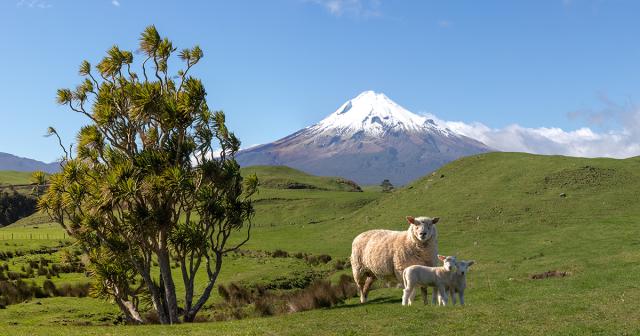New Zealand red meat prices are at record levels and are forecast to remain strong throughout the coming year, according to the New Season Outlook for 2025–2026 from Beef + Lamb New Zealand (B+LNZ).

- Download the New Season Outlook 2025–26 full report (PDF, 3.7 MB)
- Download the New Season Outlook 2025–26 summary report (PDF, 103 KB)
B+LNZ board chair Kate Acland says the outlook is positive, with tight global supply keeping demand high.
“Even with tariffs being imposed by the United States, New Zealand is still benefiting from robust international demand, particularly from the US, Europe and the UK.
“Consumers in those markets are paying more for beef and lamb, despite high inflation, which is helping hold prices up.”
Despite lower export volumes, earnings for New Zealand’s core red meat exports are expected to rise by $1.4 billion, to $10.5 billion, for the 2024–2025 season (year ending September).
Export returns for the coming 2025–26 season are forecast to hold steady, easing by only half a percent compared to 2024–2025. This reflects both the strength of global demand and the limited supply of sheep and beef product available worldwide.
“Lower forecast sheep exports by Australia in late 2025 are expected to further support sheepmeat prices,” says Acland.
“Strong US red meat demand is more than enough to absorb beef from both New Zealand and Australia, and Brazilian beef supply is also expected to remain tight.”
The high global prices are flowing through to farm gate returns, with profitability much improved over the past year.
The 2023–2024 season was one of the toughest since the Global Financial Crisis, with average farm profit before tax dropping to $18,914 and 40 percent of farms running at a loss.
In 2024–2025, profitability rebounded to $138,600 and in the coming season 2025–2026, average farm profit before tax is expected to increase further to $166,500.
Lower interest costs, strong livestock prices, better seasonal conditions and more fertiliser applied in 2024–2025 are contributing to improved farmer confidence and reinvestment.
Sheep and beef farmers are forecast to generate $7.2 billion of value on farm this coming season, spending around $15.5 million every day on goods and services in our local communities.
Prices across all wool types, except lambs’ wool, are projected to increase for the 2025–2026 season, nearing the cost of shearing for most farmers.
Fine, medium and strong wool are each forecast to rise 2–3 per cent. This is driven by solid demand from China and India, fewer sheep, and the multi-year trend of self-shedding sheep reducing supply.
However, despite the positives, Acland said there are also many global headwinds and significant risks to navigate.
The 15 per cent tariff now applying to all New Zealand exports heading into the US could strip nearly $500 million from red meat sector earnings in a season.
The US lamb industry is also continuing to push strongly for higher tariffs on New Zealand imports, while Chinese authorities are undertaking a safeguard investigation into beef imports.
Other risks include a stronger forecast for the NZ dollar, which could eat into export values, and the continued loss of productive New Zealand farmland to carbon forestry.
“Tariffs, currency swings, and ongoing land-use change to forestry could all chip away at the gains,” says Acland.
B+LNZ estimates that the sector would have exported nearly $2 billion more in red meat exports in the last 5 years if it hadn’t been for the reduction in stock numbers due to afforestation.
“If afforestation trends continue, even with the proposed legislative changes, by 2050 the country could forgo nearly $36 billion in red meat exports, weakening New Zealand’s economic resilience, export earnings and workforce participation, says Acland.
“Farmers have reason to be optimistic, but also every reason to keep planning carefully, benchmarking performance, and reinvesting in areas that will carry their businesses forward.”
ENDS
For media queries, email [email protected]